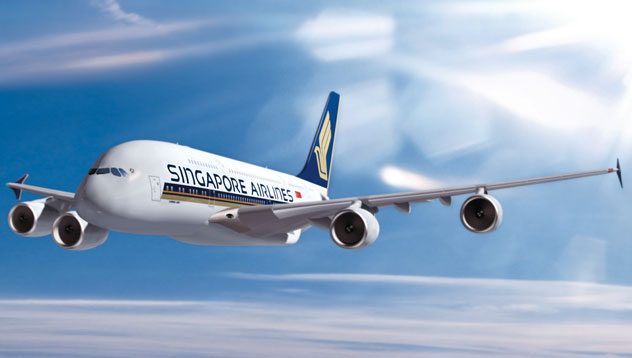Singapore Airlines has chosen SITA OptiClimb, a digital in-flight prescriptive analytics technology for fuel efficiency, to help the airline reach net-zero carbon emissions by 2050. The airline can maximise fuel use throughout the aircraft’s climb-out phase by installing SITA OptiClimb.
The approach blends aircraft tail-specific machine-learning algorithms with 4D weather forecasts to offer tailored climb speeds at different altitudes. It uses past flight data to anticipate fuel usage in various flying conditions. It suggests optimum climb profiles to pilots via a user-friendly interface.
It is predicted that if every airline in the world employs SITA OptiClimb®, fuel savings of up to 5 per cent may be realised on each trip, with about 5.6 million tonnes of CO2 emissions saved yearly.
The tool has been utilized on Singapore Airlines Airbus A350 aircraft since August 2022, following a successful test phase and confirmation of SITA OptiClimb results. According to SITA, the technology will assist the carrier in reducing aircraft carbon emissions by up to 15,000 tonnes per year.
“Singapore Airlines employs several levers to meet our sustainability targets, including the newest technology to enhance fuel economy to minimise carbon emissions,” said Captain Quay Chew Eng, Senior Vice President of Flight Operations at Singapore Airlines.
SITA OptiClimb supports this outcome with enhanced analytics. We will keep looking for new ways to lower our carbon impact and reach net-zero carbon emissions by 2050.”
“We’re delighted to be part of Singapore Airlines’ path towards making aviation more sustainable, ecologically and financially,” said Yann Cabaret, Chief Executive Officer of SITA FOR AIRCRAFT.
We can assist all airlines and their employees in making more informed decisions that produce higher operational efficiency today with innovative, cost-effective, and data-driven technologies like SITA OptiClimb.”
If current trends continue, the International Air Transport Association (IATA) estimates that aviation carbon emissions will total around 21.2 gigatonnes of CO2 between 2021 and 2050.
The aviation sector has been working on various initiatives to minimize carbon emissions and attain net-zero status by 2050. These efforts include using sustainable aviation fuels, innovative aircraft technology, and operational and infrastructural upgrades to increase aircraft fuel economy and reduce dependency on fossil fuels.


